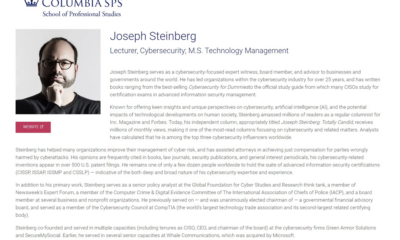Beware These 7 Holiday Season Social Media Scams
During the holiday season, criminals use various social-media borne scams to target holiday revelers. Here are some specific ones for which to watch out:
1. Fake surveys, giveaways, and contests
2. Bogus gift card offers
As I mentioned in the piece Beware These 14 Dangerous Holiday Shopping Scams, criminals often exploit holiday season as an opportunity to sell not only phony gift cards and stolen gift cards, but also legitimate gift cards purchased using stolen credit card numbers or obtained as part of the process of laundering illegally-gained money. As such, posts about discounted gift cards seem to appear on social media relatively often during this time of year – some posts may represent completely kosher offers, but a great number do not. Ideally, you should purchase gift cards directly from a card’s vendor or from a store that you know is legitimate. Some third-party gift card markets offer money back guarantees if a card is not honored – but, not only are such guarantees often of limited duration, but, in the case of holiday gifts, do you really want someone who received a gift from you to possibly to be embarrassed in a store if the card you gave him or her does not work? Do you want him or her to have to ask you to get a refund and buy another card?
3. Gift card number generators
4. Fake coupons and discounts
Social media is loaded with links to fake deals and coupons; once a single person posts a fake deal or coupon, social media can help amplify that “amazing (mis)information,” and make it go viral. Various social media platforms have taken action to curtail the number of accounts originating such scams, but one can still find plenty of social media accounts with names like “Macys Coupons,” (sic.) that simply direct people searching for coupons to particular URLs. Be careful. Links shared on social media can point to phishing sites, or to sites delivering malware, advertisements, or other undesired material. Keep in mind that people are often gullible, and social media accounts are regularly hacked, so, beware even if a close friend is sharing a “deal” or “coupon.” Other forms of fake discounts include social media posts that link to sites that advertise discounted merchandise for sale and request payment information prior to shipping out the items sold – but, which, are simply scam sites collecting credit card data, whose operators have no intent of ever delivering anything to buyers.
5. Impersonation apps
6. Fake news stories
While fake news has trended as a political topic numerous times in recent years, fake news poses other risks, including that it is not hard for a criminal to write, or copy, fake news stories that are likely to go viral due to their headlines, and to place such stories on a website that distributes malware, or to create a site for such a purpose from the get go. Fake stories about amazing gifts, deals, discounts, or offerings can be especially effective during holiday shopping season. If a story sounds outlandish, Google it to see if any established media venues can corroborate it. If none do, proceed with extreme caution – or, better yet, do not proceed.
7. Exploiting trending hashtags
Many scammers leverage popular hashtags in order to make sure that their posts are seen by as wide an audience as possible. The fact that a post contains a trending hashtag does not, in any way, indicate that the post is not dangerous. It could still point to malware, to a fake app, or to a phishing site. As such, do not trust a post just because it appears in the search results for a particular hashtag or keyword – trusting it is precisely what scammers hope that you do.
Stay safe, and Happy Holidays!













 CyberSecurity for Dummies is now available at special discounted pricing on Amazon.
Give the gift of cybersecurity to a loved one.
CyberSecurity for Dummies is now available at special discounted pricing on Amazon.
Give the gift of cybersecurity to a loved one.